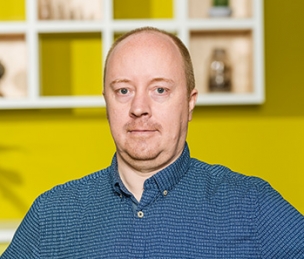Displaying 1 - 5 of 5
-
Klamer, M., Trilsbeek, P., Hoogervorst, T., & Haskett, C. (2017). Creating a Language Archive of Insular South East Asia and West New Guinea. In J. Odijk, & A. Van Hessen (
Eds. ), CLARIN in the Low Countries (pp. 113-121). London: Ubiquity Press. doi:10.5334/bbi.10.Abstract
The geographical region of Insular South East Asia and New Guinea is well-known as an
area of mega-biodiversity. Less well-known is the extreme linguistic diversity in this area:
over a quarter of the world’s 6,000 languages are spoken here. As small minority languages,
most of them will cease to be spoken in the coming few generations. The project described
here ensures the preservation of unique records of languages and the cultures encapsulated
by them in the region. The language resources were gathered by twenty linguists at,
or in collaboration with, Dutch universities over the last 40 years, and were compiled and
archived in collaboration with The Language Archive (TLA) at the Max Planck Institute in
Nijmegen. The resulting archive constitutes a collection ofmultimediamaterials and written
documents from 48 languages in Insular South East Asia and West New Guinea. At TLA,
the data was archived according to state-of-the-art standards (TLA holds the Data Seal of
Approval): the component metadata infrastructure CMDI was used; all metadata categories
as well as relevant units of annotation were linked to the ISO data category registry ISOcat.
This guaranteed proper integration of the language resources into the CLARIN framework.
Through the archive, future speaker communities and researchers will be able to extensively
search thematerials for answers to their own questions, even if they do not themselves know the language, and even if the language dies. -
Edmunds, R., L'Hours, H., Rickards, L., Trilsbeek, P., Vardigan, M., & Mokrane, M. (2016). Core trustworthy data repositories requirements. Zenodo, 168411. doi:10.5281/zenodo.168411.
Abstract
The Core Trustworthy Data Repository Requirements were developed by the DSA–WDS Partnership Working Group on Repository Audit and Certification, a Working Group (WG) of the Research Data Alliance . The goal of the effort was to create a set of harmonized common requirements for certification of repositories at the core level, drawing from criteria already put in place by the Data Seal of Approval (DSA: www.datasealofapproval.org) and the ICSU World Data System (ICSU-WDS: https://www.icsu-wds.org/services/certification). An additional goal of the project was to develop common procedures to be implemented by both DSA and ICSU-WDS. Ultimately, the DSA and ICSU-WDS plan to collaborate on a global framework for repository certification that moves from the core to the extended (nestor-Seal DIN 31644), to the formal (ISO 16363) level. -
Trilsbeek, P., & Windhouwer, M. (2016). FLAT: A CLARIN-compatible repository solution based on Fedora Commons. In Proceedings of the CLARIN Annual Conference 2016. Clarin ERIC.
Abstract
This paper describes the development of a CLARIN-compatible repository solution that fulfils
both the long-term preservation requirements as well as the current day discoverability and usability
needs of an online data repository of language resources. The widely used Fedora Commons
open source repository framework, combined with the Islandora discovery layer, forms
the basis of the solution. On top of this existing solution, additional modules and tools are developed
to make it suitable for the types of data and metadata that are used by the participating
partners.Additional information
link to pdf on CLARIN site -
Windhouwer, M., Kemps-Snijders, M., Trilsbeek, P., Moreira, A., Van der Veen, B., Silva, G., & Von Rhein, D. (2016). FLAT: Constructing a CLARIN Compatible Home for Language Resources. In K. Choukri, T. Declerck, S. Goggi, M. Grobelnik, B. Maegaard, J. Mariani, H. Mazo, & A. Moreno (
Eds. ), Proccedings of LREC 2016: 10th International Conference on Language Resources and Evalution (pp. 2478-2483). Paris: European Language Resources Association (ELRA).Abstract
Language resources are valuable assets, both for institutions and researchers. To safeguard these resources requirements for repository systems and data management have been specified by various branch organizations, e.g., CLARIN and the Data Seal of Approval. This paper describes these and some additional ones posed by the authors’ home institutions. And it shows how they are met by FLAT, to provide a new home for language resources. The basis of FLAT is formed by the Fedora Commons repository system. This repository system can meet many of the requirements out-of-the box, but still additional configuration and some development work is needed to meet the remaining ones, e.g., to add support for Handles and Component Metadata. This paper describes design decisions taken in the construction of FLAT’s system architecture via a mix-and-match strategy, with a preference for the reuse of existing solutions. FLAT is developed and used by the a Institute and The Language Archive, but is also freely available for anyone in need of a CLARIN-compliant repository for their language resources.Additional information
http://www.lrec-conf.org/proceedings/lrec2016/pdf/476_Paper.pdf -
Broeder, D., Sloetjes, H., Trilsbeek, P., Van Uytvanck, D., Windhouwer, M., & Wittenburg, P. (2011). Evolving challenges in archiving and data infrastructures. In G. L. J. Haig, N. Nau, S. Schnell, & C. Wegener (
Eds. ), Documenting endangered languages: Achievements and perspectives (pp. 33-54). Berlin: De Gruyter.Abstract
Introduction Increasingly often research in the humanities is based on data. This change in attitude and research practice is driven to a large extent by the availability of small and cheap yet high-quality recording equipment (video cameras, audio recorders) as well as advances in information technology (faster networks, larger data storage, larger computation power, suitable software). In some institutes such as the Max Planck Institute for Psycholinguistics, already in the 90s a clear trend towards an all-digital domain could be identified, making use of state-of-the-art technology for research purposes. This change of habits was one of the reasons for the Volkswagen Foundation to establish the DoBeS program in 2000 with a clear focus on language documentation based on recordings as primary material.

Share this page